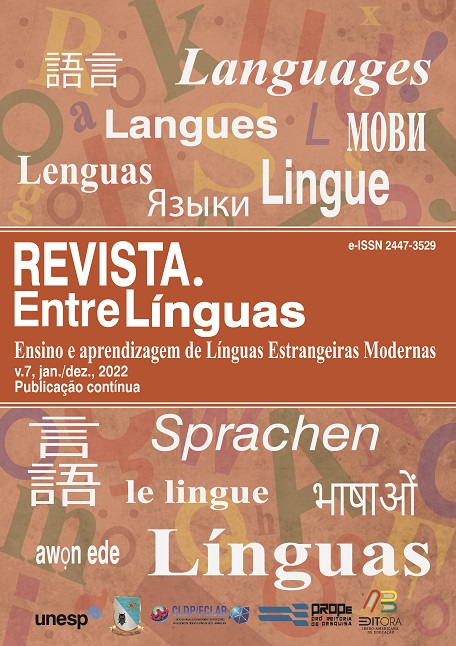Cultural reference of respect and affection of Tay people through vocative words
DOI:
https://doi.org/10.29051/el.v8i00.17675Keywords:
Communication, Tay language, Vocative wordsAbstract
Culture has close relationship with many fields, including Linguistics. Language is a special product of culture, and especially Language of ethnic minorities in Vietnam is among concerns for research. It is a means of communication and a tool for thinking. Language is a means to reflect, maintain and develop culture. Any meaningful sign of a language also contains a cultural element. Vocative words are one of those cases. The article explores the vocative words system in human language Tay in Tuyen Quang Province, Vietnam and concluded that culture is not only a factor that generates language, but also an environment for language to exist and develop. Through the system of vocative words in the Tay language, it shows the cultural characteristics of respect and affection of the Tay people.
Downloads
References
BAN, D. Q. Vietnamese Grammar. Education Publishing House, 2009.
CHAU, D. H. Understanding culture through language. In: Do Huu Chau anthology. Education Publishing House, Hanoi, 2005. v. 2.
DUONG, P. D. Vietnamese culture in the context of Southeast Asia. Social Science Publishing House, 2000.
HANG, T. T. B. et al. Where Beta is going–case of Viet Nam hotel, airlines and tourism company groups after the low inflation period. Entrepreneurship and Sustainability, v. 7, n. 3, 2020.
HAO, C. X. Vietnamese language, Vietnamese literature, Vietnamese people. Youth, Ho Chi Minh City: Publishing House, 2001.
HIEP, N. V. Vietnamese syntax. Hanoi: Hanoi National University Publishing House, 2017.
HOANH, N. H.; LOI, N. V.; THONG, T. V. Language and writing of ethnic minorities in Vietnam. Hanoi: Encyclopedia Publishing House, 2013.
HUMBOLDT, W. Introduction to Linguistics. Hanoi: Hanoi University, 1960.
HUY, D. T. N. The Critical Analysis of Limited South Asian Corporate Governance Standards After Financial Crisis. International Journal for Quality Research, v. 9, n. 4, p. 741-764, 2015.
HUY, D. T. N. et al. General solutions for enhancing quality of teachers during globalization in emerging markets including Vietnam-and some pedagogy psychological issues. Psychology and Education Journal, v. 58, n. 4, p. 2343-2349, 2021.
MA, H. V. Vietnamese ethnic minority languages: Some issues of origin relations and geometric types. Hanoi: Social Science Publishing House, 2002.
NGU, D. T. et al. Language teaching application to English students at master's grade levels on history and macroeconomic-banking management courses in universities and colleges. Journal of Language and Linguistic Studies, v. 17, n. 3, p. 1457-1468, 2021.
NGU, D. T.; HUY, D. T. N. Ethnic minority language culture, places with original Tay language elements and names inconsistence in Tuyen Quang provinces. Rev. EntreLínguas, Araraquara, v. 7, n. 00, e024039, 2021.
THEM, T. N. Finding Vietnamese cultural identity. Ho Chi Minh City: Ho Chi Minh City Publishing House, 1998.
THEM, T. N. Vietnam Cultural Foundation. Hanoi: Education Publishing House, 1999.
THI HANG, N. et al. Educating and training labor force Under Covid 19; impacts to meet market demand in Vietnam during globalization and integration era. Journal for educators, teachers and trainers, v. 12, n. 1, 2021.
THI HOA, N. et al. Human resource for schools of politics and for international relation during globalization and EVFTA. Elementary education online, v. 20, n. 4, p. 2276-2288, 2021.
THI HOA, N. et al. Human resource for schools of politics and for international relation during globalization and EVFTA. Elementary education Online, v. 20, n. 4, 2021.
THUAT, D. T. Vietnamese Phonetics. Hanoi: Hanoi National University Publishing House, 2016.
TINH, D. T. Doing business research and teaching methodology for undergraduate, postgraduate and doctoral students-case in various markets including Vietnam. Elementary Education Online, v. 20, n. 1, p. 1414-1418, 2021.
TOAN, H. H. Folk beliefs of the mountainous ethnic groups in the North of our country. Thai Nguyen: Thai Nguyen University of Pedagogy, 1995.
TON, N. D. National cultural characteristics of language and thinking. Social Science Publishing House, 2008.
TON, N. D. Understanding cultural - ethnic characteristics and thinking of Vietnamese people (in comparison with other ethnic groups). Hanoi: National University Publishing House, 2002.
TRAM, P. N; NGOC HUY, D. T. Educational, Political and Socio-Economic Development of Vietnam Based on Ho Chi Minh’s Ideology. Elementary education online, v. 20, n. 1, 2021.
Published
How to Cite
Issue
Section
License

This work is licensed under a Creative Commons Attribution-NonCommercial-ShareAlike 4.0 International License.
Os manuscritos aceitos e publicados são de propriedade da Revista EntreLínguas. Os artigos publicados e as referências citadas na Revista EntreLínguas são de inteira responsabilidade de seus autores.
Transferência de direitos autorais – autorização para publicação
Caso o artigo submetido seja aprovado para publicação, já fica acordado que o(s) autor(es) autoriza(m) a UNESP a reproduzi-lo e publicá-lo na EntreLínguas, entendendo-se os termos “reprodução” e “publicação” conforme definição respectivamente dos incisos VI e I do artigo 5° da Lei 9610/98. O artigo poderá ser acessado pela rede mundial de computadores (Internet), sendo permitidas, a título gratuito, a consulta e a reprodução de exemplar do artigo para uso próprio de quem a consulta, desde que haja a citação ao texto consultado. Essa autorização de publicação 328 EntreLínguas, Araraquara, v. 1, n .2, p. 323-328, jul./dez. 2015 não tem limitação de tempo, ficando a UNESP responsável pela manutenção da identificação do(s) autor(es) do artigo. Os artigos publicados e as referências citadas na Revista EntreLínguas são de inteira responsabilidade de seus autores.











